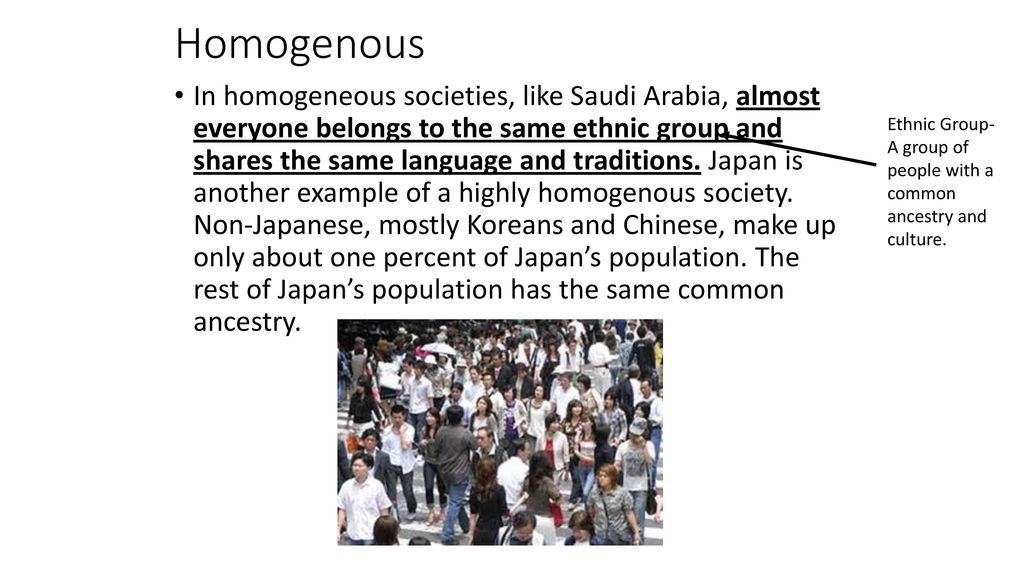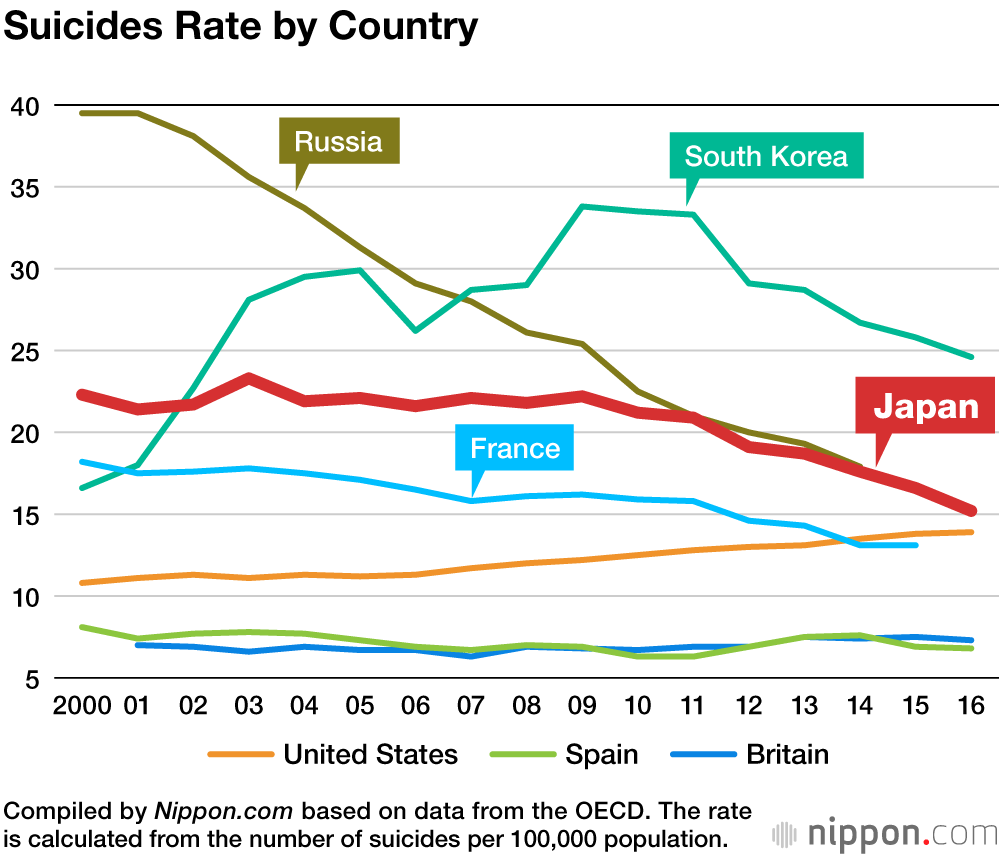
This concept started strongly after WWII when the Japanese emperor wanted the whole country, Japan, to be as one and follow him as a leader in order to overcome the damages that were done. Children would have the same opportunity to go to school and get education, wear the same uniform regardless of being poor or rich, adults would have the same jobs style where they fully devoted themselves to work. Back then the people in Japan had one goal: to cooperate and rebuild the country. Now, this old custom is culture which grew deeply in Japanese's daily life.
One or two years ago, there was a case of a Japanese girl who was in junior high school and she had to sue her school for forcing her to dye her natural hair darker so she looked the same as everybody else. She was simply being herself but the school didn't want to get a bad reputation because of her.
Although, younger generation might be changing its history, the intolerance for diversity is still little. All Japanese people are expected to follow one way path when they grow. Study and pass hard exams from elementary school to college, go through a quite stressful job hunting, get a decent job, work, work, work, get married, buy a house and work, work, work... A lot of the time passion, talents, leisure etc are ignored. Anyone who dare to be different, is shamed so it takes a lot of courage to be yourself in Japan.
Suzuki Takao (1980) explains that racial and ethnic homogeneity in Japan is not an objective fact, it is instead a construct of those who are motivated to promote a certain cultural conception of Japan. He says, homogeneity in Japan means that local, class, gender, and other variables within Japan are not important enough to violate the essential sameness throughout Japanese culture and among all Japanese. If this is the case, then Japanese themslves seem to choose to have a homogeneous society.
This make me wonder, how do LGBT kids or girls that end up getting pregnant feel growing up in such environment? Are those cases of bullying in school I see on TV news about a kid that wants to be different but can't? What about people who already know his/her dream job, do they must go to college and do something they don't need to just to satisfy his/her parents so they can show it off to co-workers, family or neighbours? Is the suicide rate still so high in Japan perhaps because people can't simply be themselves? How are foreigners or even Japanese halfs who live in Japan treated on daily basis?
Like one of the greatest Japanese author Kaneko Misuzu says, minna chigatte minna ii (everybody is different and everybody is special) the reality is that no one is the same, yet this extreme homogenous society waste what's great in people.

Globalization is happening. Huntington an American political scientist, adviser and academic says, "it is my hypothesis that the fundemental source of conflict in this new world will not be primarily ideological or primarily economic. The great devision among humankind and the dominating source of conflict will be cultural"
Japanese culture is well appreciated around the world and it is one of the most unique culture. Sticking to tradition or passing down Japanese essential values seems important to preserve the culture.
However, specially considering the issue of the super-aged society where immigration will be needed, it seems Japan will have to learn to accept diversity sooner or later for its people and a stable future remaining as one of the most developed countries in the world.